

Russia's President Vladimir Putin says his country will continue its yearlong "special military operation" in Ukraine, and he accused the US-led NATO alliance of fanning the flames.
Russia-Ukraine conflict would have cost world economy $1.6 trillion in 2022, according to a study published by the German Economic Institute.
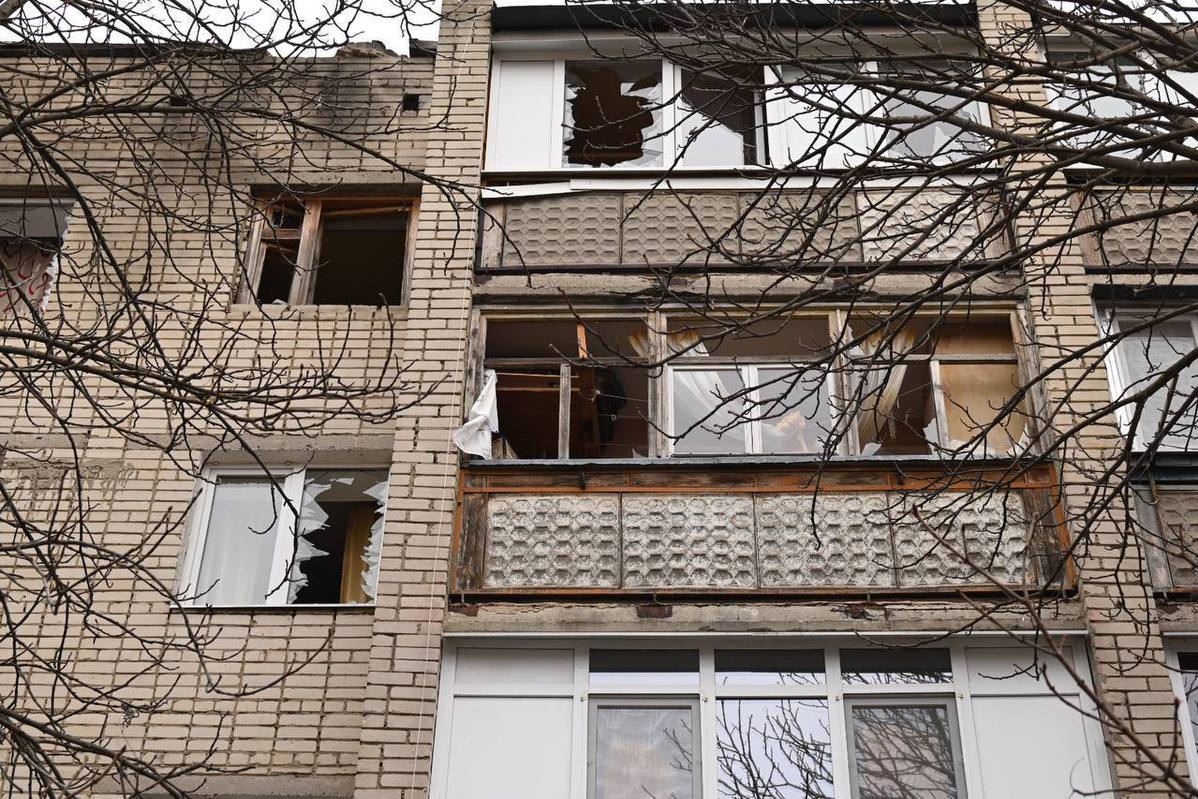
MOSCOW -- Two people were killed and another 19 injured Thursday after Ukrainian attacks on Russia's Belgorod region, according to the region's Governor Vyacheslav Gladkov.
Ukrainian attacks damaged a medical facility in Belgorod, as well as dozens of residences and vehicles, Gladkov said in his Telegram channel, adding that air defense system shot down 11 air targets over the day.
Ahead of Russia's presidential election scheduled between March 15 and 17, missile danger alerts have been declared repeatedly in Russia's Belgorod and Kursk regions.
Andrey Klimov, deputy chair of the federation council committee on foreign affairs, said Thursday that anti-Russian forces are using attacks on Russia to artificially increase pre-election tension.
China supports holding an international peace conference that is recognized by both Russia and Ukraine in due course, Foreign Minister Wang Yi said on Thursday at a news conference during the second session of the 14th National People's Congress.
The conference should ensure the participation of all parties and fair discussions on all peace plans, he said.
"All conflicts have to end at the negotiating table. The earlier the talks start, the sooner peace will arrive," Wang said, noting that all of China's efforts point to the goal of paving the way for ending the conflict and starting peace talks.
Wang stressed that past experience shows that a conflict, when prolonged, tends to deteriorate and escalate, even to the extent unthinkable for parties concerned.
Misperception and miscalculation will accumulate and may lead to an even bigger crisis if peace talks are absent, he said.
"Lessons in this regard should not be forgotten," Wang said.
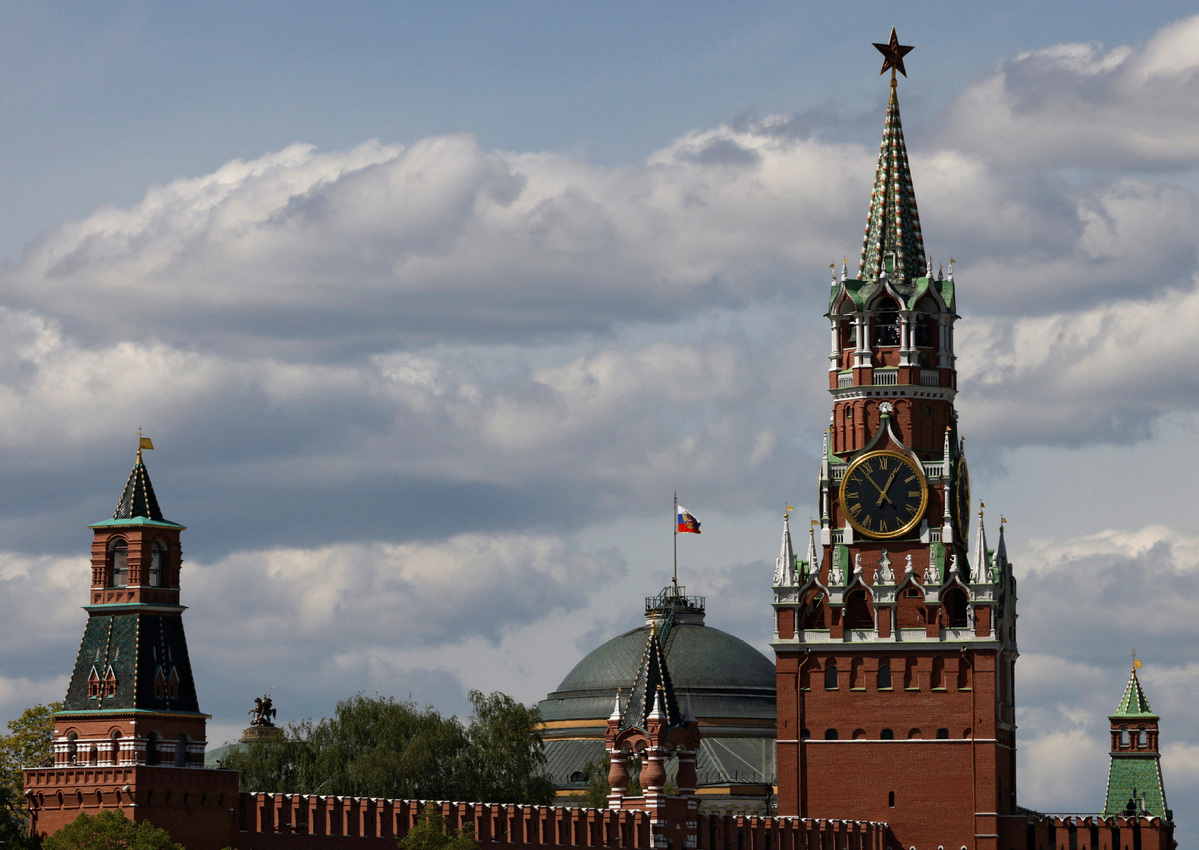
The Russian Foreign Ministry summoned the German ambassador on Monday, TASS news agency reported, after Russian media published an audio recording of Berlin's potential involvement in the conflict in Ukraine.
In the purported call released by Russia's RT broadcaster, German military officers were heard discussing weapons for Ukraine and a potential strike by Kyiv on a bridge in Crimea, prompting Russian officials to demand an explanation.
The Kremlin said on Monday that the content of a leaked conversation between German officials about potential strikes on Crimea proved Western countries were participating in the conflict in Ukraine.
"The recording itself suggests that the Bundeswehr is discussing substantively and specifically plans to strike Russian territory," Kremlin spokesman Dmitry Peskov said.
Peskov was speaking as the German ambassador to Russia was summoned to the foreign ministry in Moscow.
Ambassador Alexander Graf Lambsdorff left the ministry building without giving any comment, Russian news agencies reported.
Dmitry Medvedev, deputy chairman of Russia's Security Council also said on Monday that Moscow would show restraint in response to the purported intercept of the German military discussing a strike on Russia, but would not forget about it.
He made the comments at a youth forum in southern Russia, the RIA news agency reported.
German Defense Minister Boris Pistorius earlier responded to the leak, describing it as part of Russia's "information war" against the West, and that it was aimed to create discord within Germany.
In the 38-minute recording, German military officers also discussed how the Taurus long-range cruise missiles could be used by Ukraine. It was said the audio was leaked as a debate had been taking place in Germany over whether to supply the missiles.
Pistorius told reporters on Sunday that the Bundeswehr officers did not discuss specific plans, but talked about hypothetical options, keeping in mind that Germany should not become part of the conflict in Ukraine.
He said the timing was not a coincidence.
"It is part of an information war …There is absolutely no doubt about that," he said. "It is a hybrid attack aimed at disinformation. It is about division. It is about undermining our resolve."
He also said it does not mean it is a green light to supply the weapons to Ukraine.
On Saturday, the German Defense Ministry confirmed the call had been wiretapped. Chancellor Olaf Scholz pledged a prompt investigation into the situation.
Earlier last week, Scholz said he remains reluctant to send the Taurus missiles to Ukraine, pointing to a risk of Germany becoming directly involved in the conflict. His hesitancy is a source of friction in his three-party coalition and also annoyed Germany's conservative opposition.
NATO member Turkiye hopes talks for a cease-fire in Ukraine will start soon, Foreign Minister Hakan Fidan said on Sunday after meeting his Russian counterpart Sergey Lavrov on the sidelines of the Antalya Diplomacy Forum.
Rail network targeted
But a truce seemed to be far away from happening as Ukraine said it blew up a railway bridge in Russia's southwestern Samara region on Monday because it was being used to transport "military cargo". It was the latest in a string of explosions targeting Russia's rail network.
Meanwhile, NATO was scheduled to kick off an exercise on Monday to defend its newly expanded Nordic territory, with more than 20,000 soldiers from 13 nations expected to take part in drills lasting nearly two weeks in the northern regions of Finland, Norway and Sweden.
With over 4,000 Finnish soldiers taking part, the Norway-led Nordic Response 2024 represents the NATO newcomer's largest-ever participation in a foreign exercise, Finland's military said.
Finland, which shares a 1,340-kilometer border with Russia, joined NATO in April in a historic move following decades of military nonalignment. With its bid now ratified by all NATO members, neighboring Sweden is currently finalizing formalities to enter the military alliance as its 32nd member — most likely in March.
Agencies contributed to this story.
KIEV -- Ukraine stands ready to extend gas transit from Russia if there is a request from the European Union (EU) countries, the Interfax-Ukraine news agency reported Monday, citing Ukrainian Prime Minister Denys Shmyhal.
"If the European countries act as a consortium or one of the European partners will act as a transit country for their gas -- we are ready to provide such a service," Shmyhal told a press conference.
Ukraine can seal a deal on gas transit with the European Commission or a group of European countries that are interested in maintaining the transit, Shmyhal said.
He stressed that Ukraine will not extend the existing gas transit contract or sign a new contract with Russia.
Ukraine's state-run energy company Naftogaz and Russia's gas giant Gazprom signed a gas transportation agreement in December 2019. The contract envisages that Ukraine would transit 40 billion cubic meters of Russian gas per year during the 2021-2024 period.
Last year, Russia's gas transit via Ukraine was down by 28.4 percent to 14.6 million cubic meters.
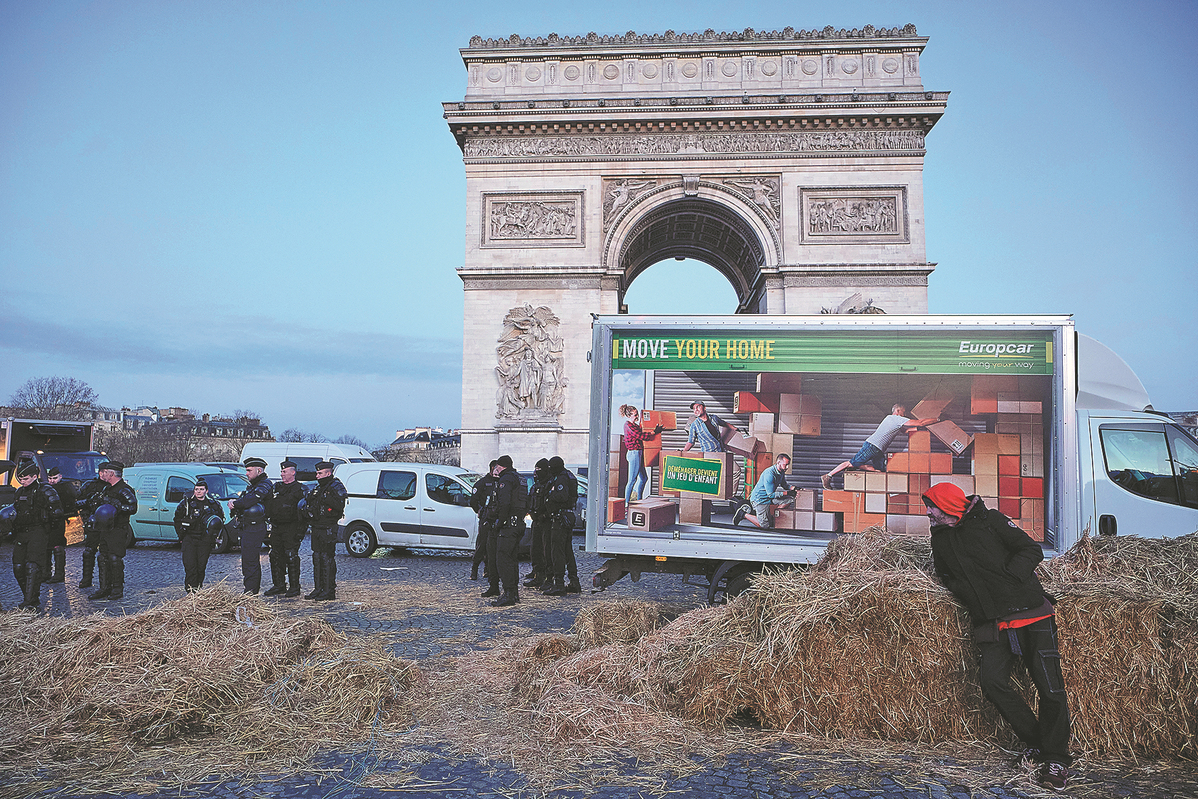
European Union countries are continuing to show resolute support for Ukraine in its conflict with Russia, but protests by farmers across the continent have shown that more people are reluctant to continue sacrificing their own interests for the cause, analysts say.
Farmers across Europe have staged protests over the past few weeks against the EU's agricultural policies and food imports from Ukraine.
On Friday, French agricultural workers encircled the Arc de Triomphe in Paris with their tractors, staging a demonstration aimed at "saving French agriculture".
Also last week thousands of farmers took to the streets in the Polish capital, Warsaw, and agricultural protesters disrupted traffic on roads in Spain close to the French border on Tuesday.
The protesters called for a retraction of the EU's Green Deal, an initiative designed to combat climate change that they argue imposes excessive costs on them.
The demonstrators also demanded that imports of Ukrainian grains and other agricultural products be stopped, saying that their substandard quality is detrimental to the food supply and poses a risk to agriculture.
In May 2022 the EU established the EU-Ukraine Solidarity Lanes to address the issue of agricultural exports. However, for logistical and other reasons most of the Ukrainian agricultural products transiting through ended up stranded in EU countries, to the cost of local farmers.
Zhao Junjie, a research fellow at the Institute of European Studies at the Chinese Academy of Social Sciences in Beijing, said that as the Russia-Ukraine conflict goes into its third year, whether to continue supporting it will become an increasing preoccupation for many.
The EU perceives Russia as a threat to Europe, and countries across the continent appear united in supporting Ukraine. Although within member countries people were once at loggerheads on matters such as aid to Ukraine and Sweden joining NATO, these differences have ultimately been resolved, Zhao said, adding, "However, ordinary people see things quite differently."
The EU has imposed sanctions on Russia over the past two years that have had a significant impact on its economy, leading to rising energy prices and high inflation, which has fed into higher living costs for ordinary people, he said.
The European Commission recently cut its forecast for EU economic growth this year from 1.3 percent to 0.9 percent.
The EU has used a lot of funds that could have been used to support economic recovery, and focus on the interests of the public, Zhao said.
For example, the EU Council recently approved 50 billion euros ($54 billion) in aid for Ukraine, and some member countries have cut subsidies for agricultural products, much to the ire of many farmers.
Moreover, the EU's transformation toward green agriculture has led to restrictions on the production of local agricultural products, and special policies have allowed an influx of cheap Ukrainian agricultural products into the broader European market.
Fatigue seen
He Yun, an associate professor at the School of Public Administration, Hunan University, said that as the Russia-Ukraine conflict continues, fatigue has set in in the West on supporting Ukraine, and the conflict is likely to further divide the European society.
Angry farmers have already become a problem for the EU and many of its member countries. In European Parliament elections set for June, far-right political parties are likely to capitalize on farmers' discontent to gain an advantage, He said.
A poll published in Europe by the European Council on Foreign Relations recently found that only 10 percent of respondents said they thought Ukraine could defeat Russia on the battlefield. At the same time, 41 percent said peace talks should be pushed forward.
MOSCOW -- Russia has expressed its readiness to transfer the bodies of those who perished in the crash of a military Il-76 aircraft in the Belgorod region to Ukraine, local media reported on Friday.
"Yes, we are prepared. Everything necessary from a procedural standpoint is in place," Russian Human Rights Commissioner Tatyana Moskalkova was quoted by Russia's RIA Novosti news agency as saying.
She added that the bodies can be handed over following existing procedures.
On Jan. 24, the Ukrainian armed forces shot down a Russian military transport aircraft, the Il-76, over the Belgorod region. The aircraft was carrying 65 Ukrainian prisoners for exchange. All the prisoners, along with three accompanying Russian officers and six crew members, lost their lives.
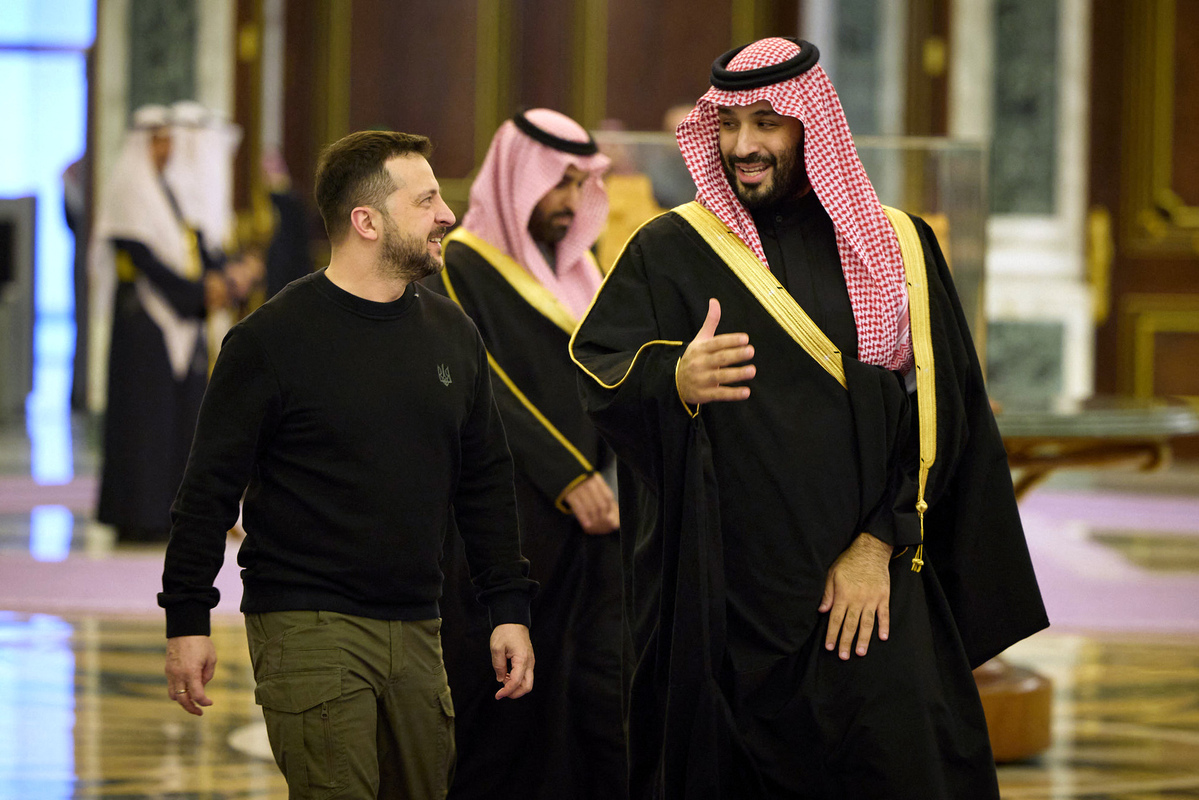
RIYADH -- Ukrainian President Volodymyr Zelensky on Tuesday discussed the Russia-Ukraine crisis with Saudi Crown Prince and Prime Minister Mohammed bin Salman Al Saud, the Saudi Press Agency (SPA) reported.
The Saudi crown prince reaffirmed his country's support for all international endeavors aimed at resolving the crisis and achieving peace, and its continued contribution to alleviating the situation through humanitarian assistance, the SPA said.
Zelensky "expressed appreciation and thanks for the efforts exerted by the Kingdom in this regard," according to the report.
The visit aimed to discuss peace prospects, the exchange of prisoners of war, and the areas of economic cooperation and potential involvement of Saudi Arabia in Ukraine's post-war reconstruction efforts, Zelensky said on social media platform X, formerly known as Twitter.
"We discussed the Peace Formula's points and the progress that can be made in implementing them. Saudi Arabia's leadership can assist in finding equitable solutions," Zelensky said. Ukraine's Peace Formula calls for the full withdrawal of Russian troops from Ukrainian territory.
In another post on X, the Ukrainian president noted that Saudi Arabia "has already contributed to the release of our people. I am confident this meeting will also yield results."
Saudi Arabia, which maintains ties with both Moscow and Kiev, had mediated between the two sides before, helping reach a deal in September 2022 that freed over 200 captive Ukrainians.
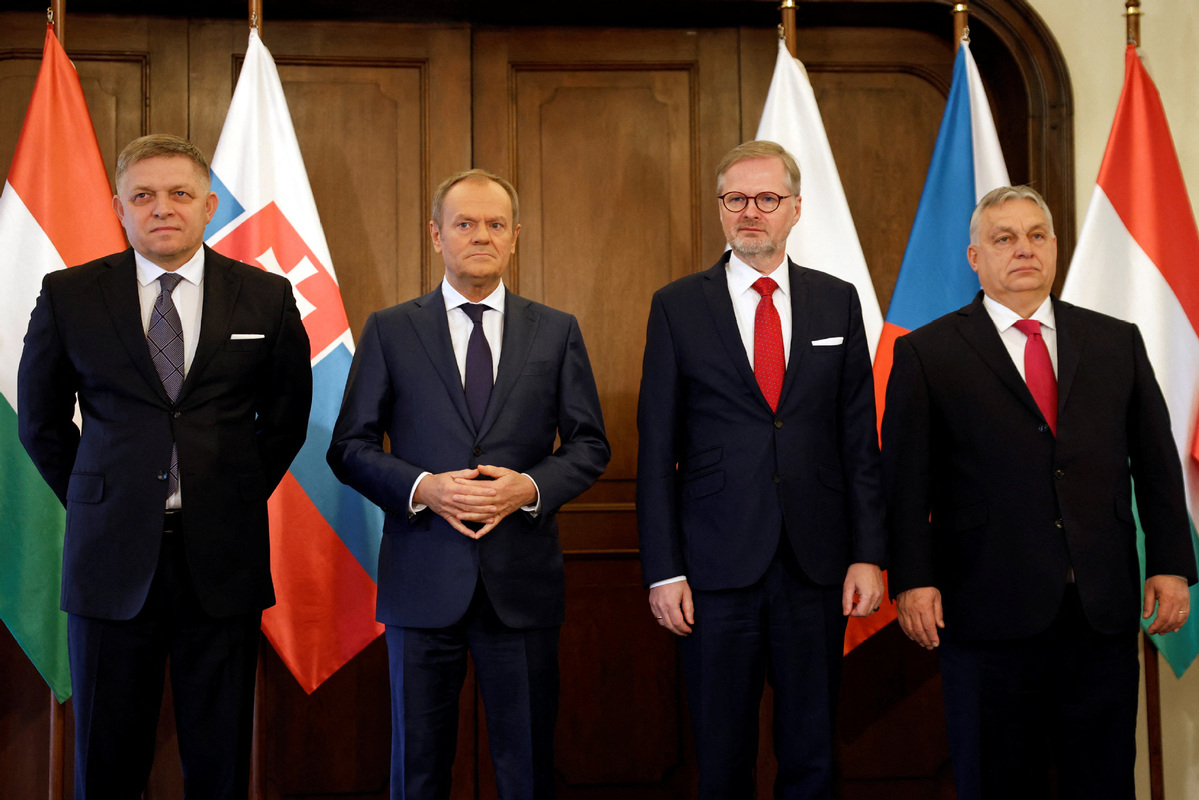
PRAGUE -- The Visegrad Group (V4) countries are not planning to send troops to Ukraine, their prime ministers (PMs) said here on Tuesday.
Czech PM Petr Fiala, Poland's Donald Tusk, Slovakia's Robert Fico and Hungary's Viktor Orban made the statement after a V4 leaders meeting.
Despite their agreement on Ukraine's need for help, they are willing to offer assistance in different forms, Fiala said.
According to Fiala, the Czech Republic and Poland are providing military aid to Ukraine, while Hungary and Slovakia are willing to offer humanitarian and financial aid.
Fico called for an immediate ceasefire and peace talks to solve the Ukraine crisis. Orban also called for peace talks as soon as possible.
Moreover, while the V4 members agreed not to change EU founding treaties, they reached a consensus to adjust common agricultural policy to reduce bureaucracy and regulation, Fiala told reporters.
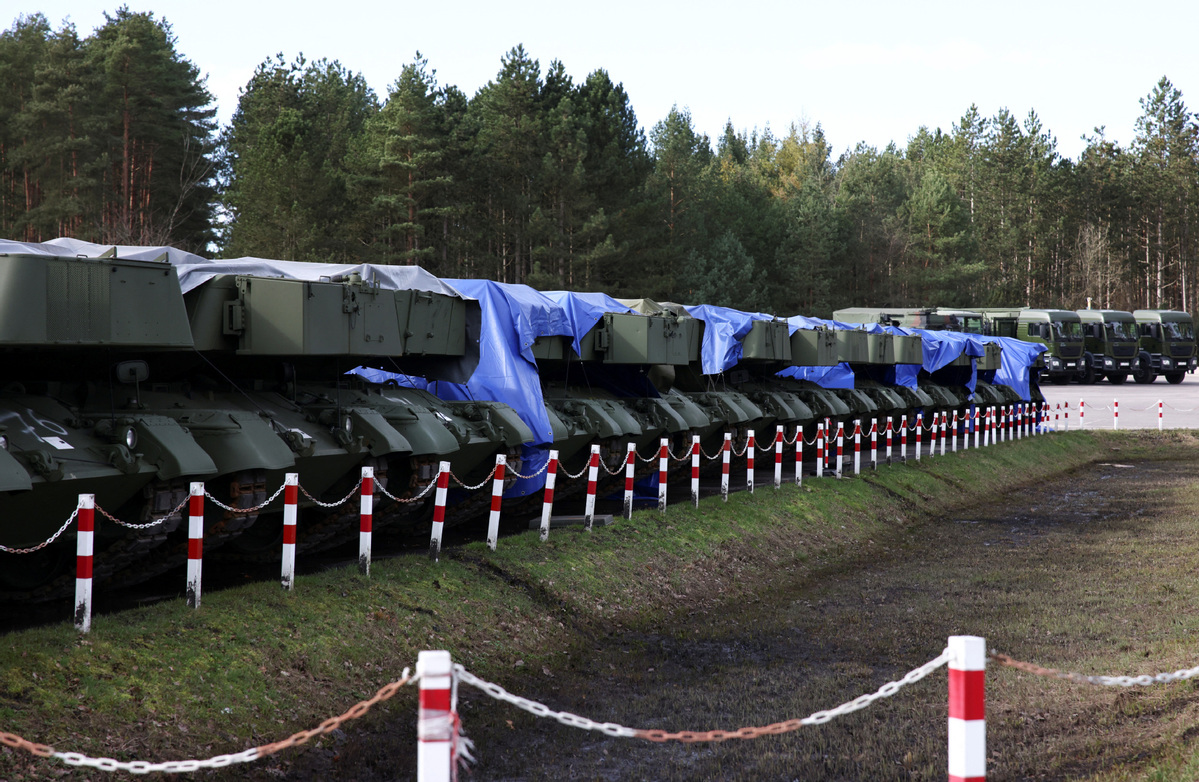
VIENNA -- German Defense Minister Boris Pistorius on Tuesday ruled out sending German ground troops to Ukraine after French President Emmanuel Macron suggested on Monday that European nations might do so.
"Boots on the ground is not an option for the Federal Republic of Germany," Pistorius told a press conference after meeting with Austrian Defense Minister Klaudia Tanner in Vienna on Tuesday.
Tanner also called Macron's remarks "a worrying signal."
Macron said at a gathering of European leaders on Monday that while there was no official consensus among European leaders, the possibility of sending Western troops to Ukraine "should not be ruled out," adding that the West will do everything to ensure Russia does not win the ongoing conflict.
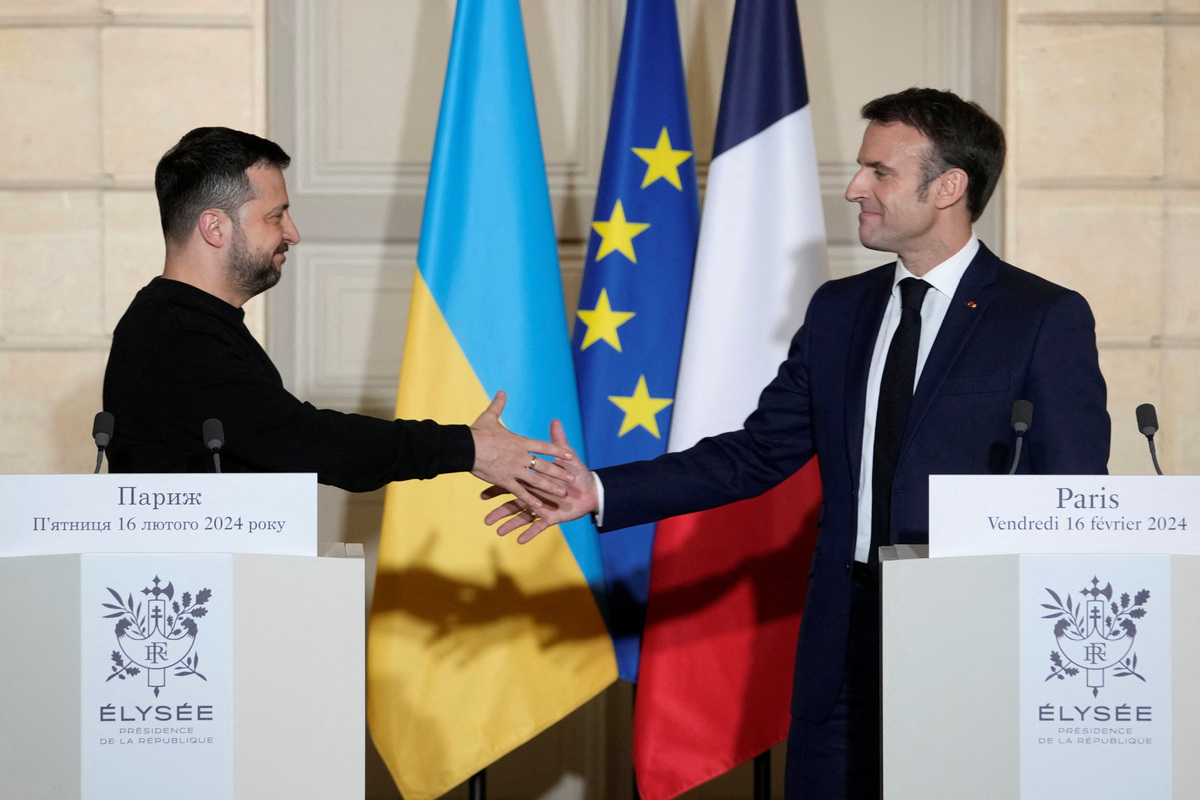
PARIS -- French President Emmanuel Macron and Ukrainian President Volodymyr Zelensky signed a 10-year security pact in Paris on Friday.
Under the pact, France will offer "up to 3 billion euros" ($3.23 billion) in aid to Kiev in 2024 after having provided support worth 1.7 billion euros in 2022 and 2.1 billion euros in 2023, Macron told a press conference alongside Zelensky.
The French president also said he would visit Ukraine by mid-March.
The pact with France was "ambitious and concrete", said Zelensky.
Earlier in the day, Zelensky and German Chancellor Olaf Scholz signed a long-term security agreement in Berlin. Ukraine had already signed such a security agreement with the United Kingdom in January. (1 euro = 1.08 US dollar)
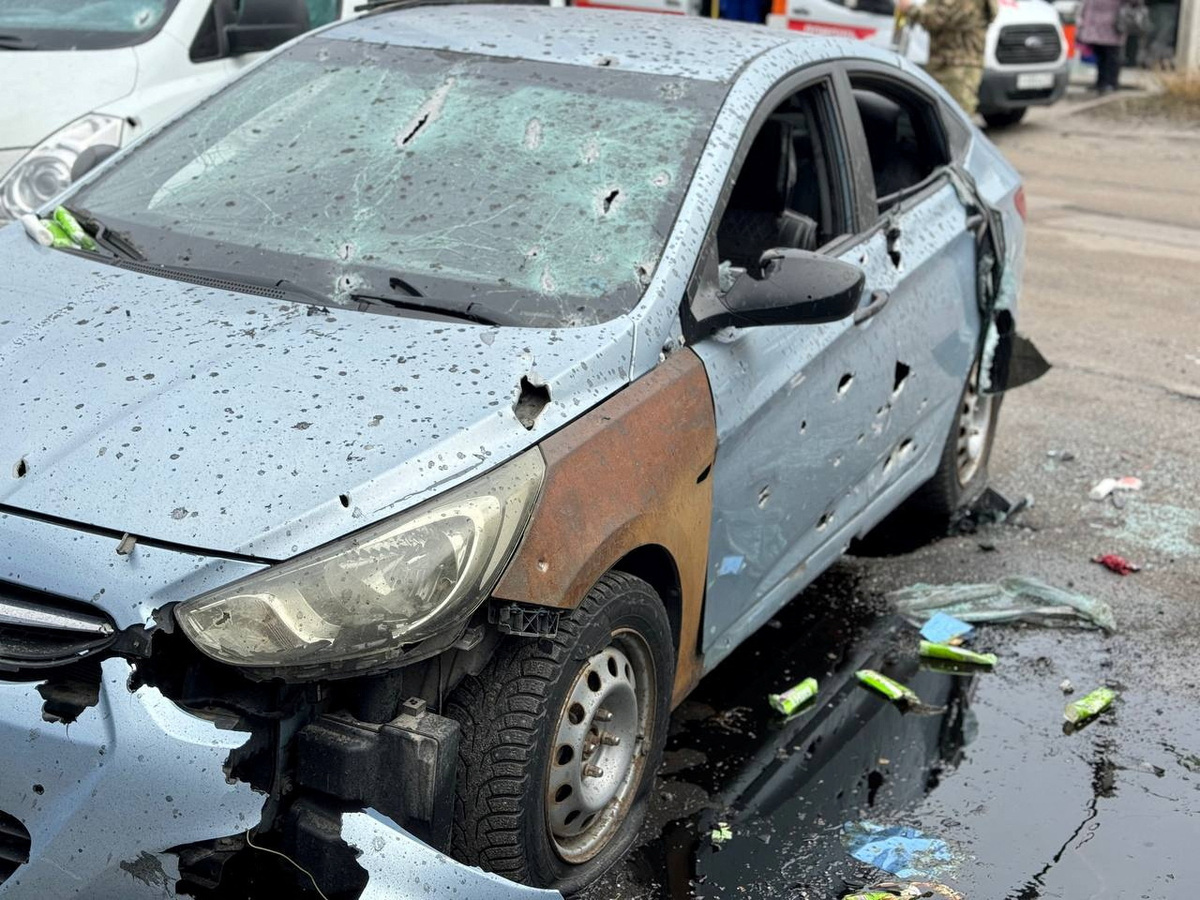
MOSCOW -- Seven people were killed and 18 others injured in a Ukrainian rocket attack on Russia's Belgorod, Russia's Ministry of Health said Thursday.
The attack targeted a shopping center in Belgorod, resulting in casualties, including one child among the deaths and four children among the injured, said the ministry.
The shopping center, which houses a grocery store and a pharmacy, was severely damaged as a result of the rocket attack by the Ukrainian armed forces, Russia's RIA Novosti news agency said in an earlier report.
According to Russia's Ministry of Defense, the Russian air defense shot down 14 RM-70 Vampire MLRS rockets over the Belgorod region.
The Russian Foreign Ministry strongly condemns the attack against civilians and civilian infrastructure, the ministry said in a statement on its website, adding that the crime will be investigated and the perpetrators will be severely punished.
Russia intends to raise this issue for consideration in the United Nations Security Council and other international organizations, the ministry said.
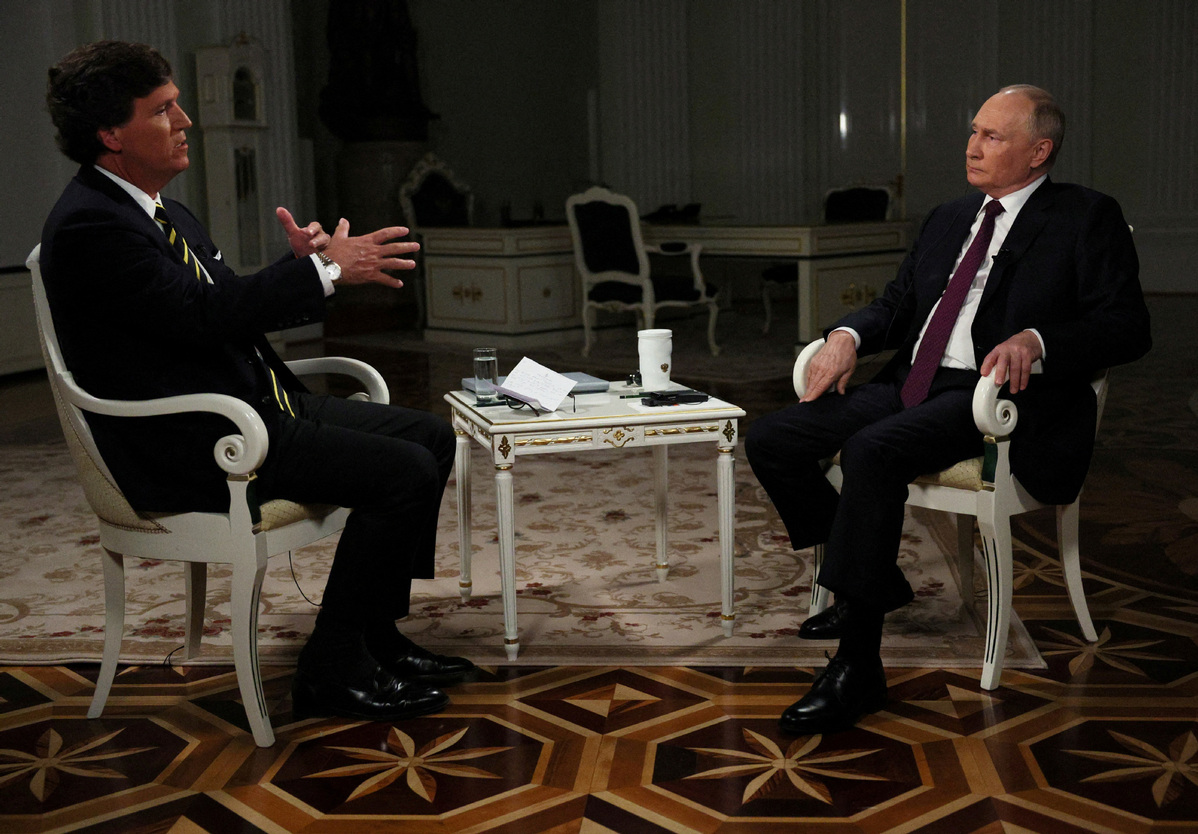
MOSCOW -- Russia has repeatedly sought a peaceful solution to the problems in Ukraine since 2014, Russian President Vladimir Putin said in an interview with US media personality Tucker Carlson published Friday.
"We repeatedly, repeatedly offered to seek a solution to the problems that arose in Ukraine after the coup in 2014 by peaceful means. But no one listened to us. And what's more, the Ukrainian leadership, which was under full control of the United States, suddenly declared that it would not fulfill the Minsk agreements, they did not like anything there, and continued military activity in this territory," Putin said.
Meanwhile, the development of this territory by NATO military structures took place under the guise of various training and retraining centers for personnel, said Putin, adding that they had actually built bases there.
He recalled that the Ukrainian authorities adopted laws that restricted the rights of Russians. "In Ukraine, they declared that Russians are -- they passed a law -- a non-titular nation, and at the same time they adopted laws that restrict the rights of non-titular nations."
"This all together caused the decision to end the war that was started by neo-Nazis in Ukraine in 2014 by armed means," the Russian president said.
KIEV -- At least five people were killed and dozens others injured in a fresh Russian massive drone and missile attack on Ukraine on Wednesday, local authorities said.
Kiev was hit the hardest in the strikes that targeted six Ukrainian regions, according to Interior Minister Ihor Klymenko.
At least four people were killed and 40 others injured in the Ukrainian capital when debris from a missile hit an 18-storey building in the southern Holosiivskyi district, said the National Police.
Three people were injured and 58 private houses damaged in the Kiev region, said the regional military administration.
One person died and six others were wounded in the attack in the city of Mykolayiv in southern Ukraine, the regional police said in a statement.
Two people were also injured in the eastern Kharkiv region, said the State Service for Emergencies.
Russia fired 44 missiles, including cruise and ballistic missiles, and 20 Shahed combat drones at Ukraine, said the Ukrainian Air Force.
According to it, 29 missiles and 15 drones were downed by the air defense.
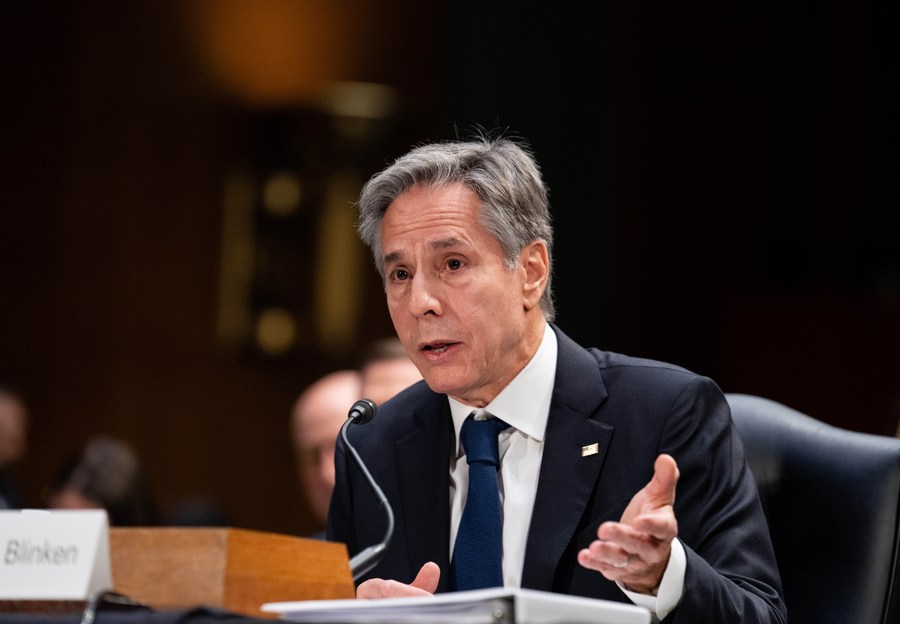
WASHINGTON -- The US State Department on Wednesday announced this year's final package of weapons and equipment to aid Ukraine, exhausting existing funding still at the Biden administration's disposal.
The arms and equipment in the package are worth up to $250 million and are being provided "under previously directed drawdowns for Ukraine," Secretary of State Antony Blinken said in a statement.
"Capabilities provided in today's package include air defense munitions, other air defense system components, additional ammunition for high mobility artillery rocket systems, 155mm and 105mm artillery ammunition, anti-armor munitions, and over 15 million rounds of ammunition," Blinken said.
Assistance packages such as this just-announced one fall under the Presidential Drawdown Authority, which allows weapons to be pulled directly from the stocks of the Department of Defense so that they can be delivered to Ukraine in a swift manner.
The United States has already used up funds from another form of assistance for Ukraine, the congressionally-appropriated Ukraine Security Assistance Initiative, which enables the Department of Defense to purchase weapons for Kiev by signing contracts with arms manufacturers.
In his statement, Blinken reiterated the urgent need for Congress to get their work done. "It is imperative that Congress act swiftly, as soon as possible, to advance our national security interests by helping Ukraine defend itself and secure its future," he said.
Warning that the funding Congress previously approved for providing assistance to Ukraine would soon dry up, the Biden administration said last week that lacking lawmakers' renewed commitment to further appropriation meeting the White House's over $60 billion supplemental budget request for Ukraine, the administration would be able to announce but one additional package for Kiev before year's end.
"We are still planning one more aid package to Ukraine later this month," John Kirby, the National Security Council's Coordinator for Strategic Communications, told reporters on Dec. 18.
"However, when that one's done ... we will have no more replenishment authority available to us, and we're going to need Congress to act without delay, as we have been saying," Kirby said.
On Capitol Hill, Republicans are withholding their votes for new money for Ukraine, conditioning their approval on Democrats making compromise to satisfy the GOP's demand for tighter control measures on the border to keep incoming migrants at bay.
Since the Russia-Ukraine conflict broke out in February 2022, the United States has committed more than $44.2 billion in military aid to Ukraine, the Pentagon said in a fact sheet published Wednesday.
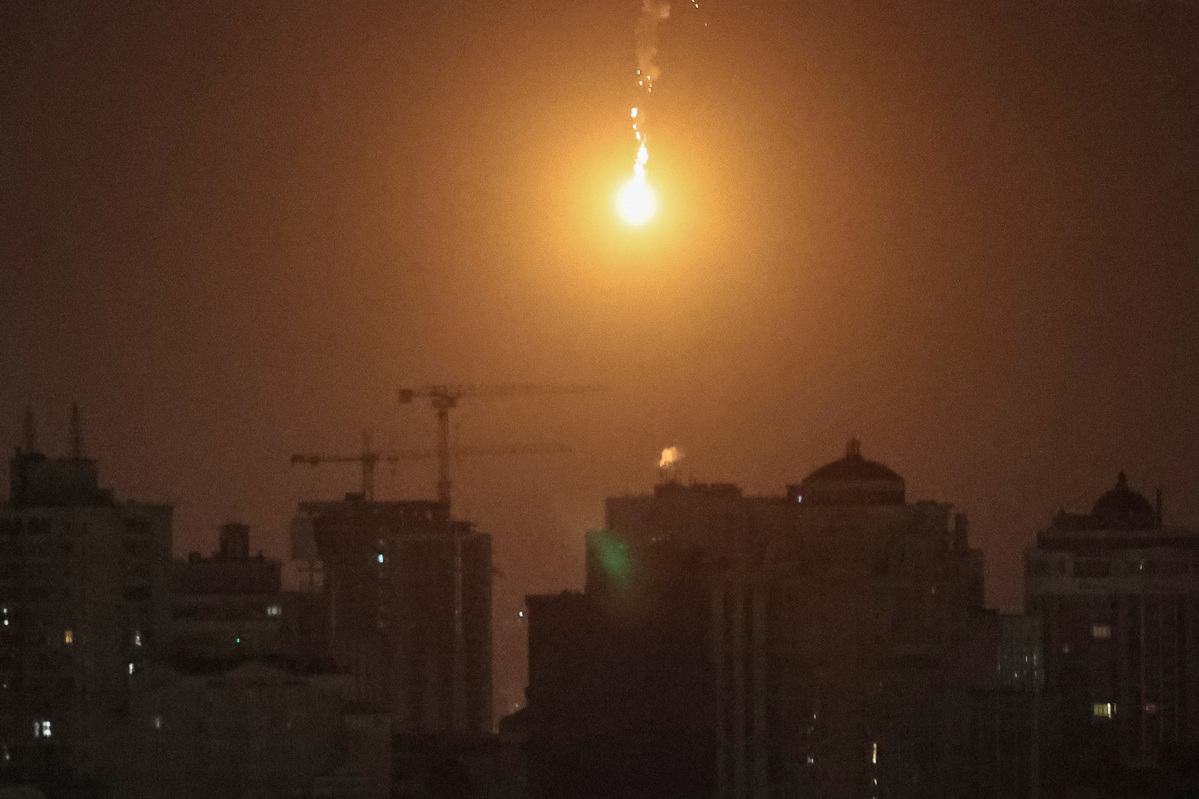
KYIV -- At least five people were injured here overnight Saturday as Russian forces carried out a large-scale drone attack against the city, authorities said.
Russia attacked Ukraine with 75 kamikaze drones Shahed-131 and Shahed-136, and most of them were launched against Kyiv, the Air Force Command of the Ukrainian Armed Forces said on Telegram.
The Ukrainian air defense destroyed 71 of the drones, it said.
The drone strike, which lasted for six hours, marked the fourth attack on Kyiv this month, the Kiev City Military Administration said in a statement.
The attack disrupted the electricity supply to 77 residential buildings and 120 institutions, it said.
Kiev Mayor Vitali Klitschko said four adults and an 11-year-old child suffered minor injuries in the attack.
Private houses, apartment blocks and a kindergarten in Kyiv have been damaged by the falling drone parts, Klitschko wrote on Telegram.
KYIV -- The Ukrainian government spent more than 1.031 trillion hryvnias (28.2 billion US dollars) to cover the country's defense needs this year, the cabinet press service reported Friday, citing Prime Minister Denys Shmyhal.
Out of the sum, 682 billion hryvnias (18.66 billion dollars) were used to pay salaries for military personnel, and some 349 billion hryvnias (9.55 billion dollars) purchase military equipment, armor, ammunition, and other defense industry products, Shmyhal said.
The defense sector, he said, was Ukraine's budget priority in the first nine months of this year, followed by social programs and healthcare.
Next year, Ukraine will direct "all possible resources" to support defense and security forces, Shmyhal said.
Ukraine's draft budget for 2024 envisages that next year the country will allocate at least 1.69 trillion hryvnias (46 billion dollars), or 21.6 percent of its GDP, for defense.
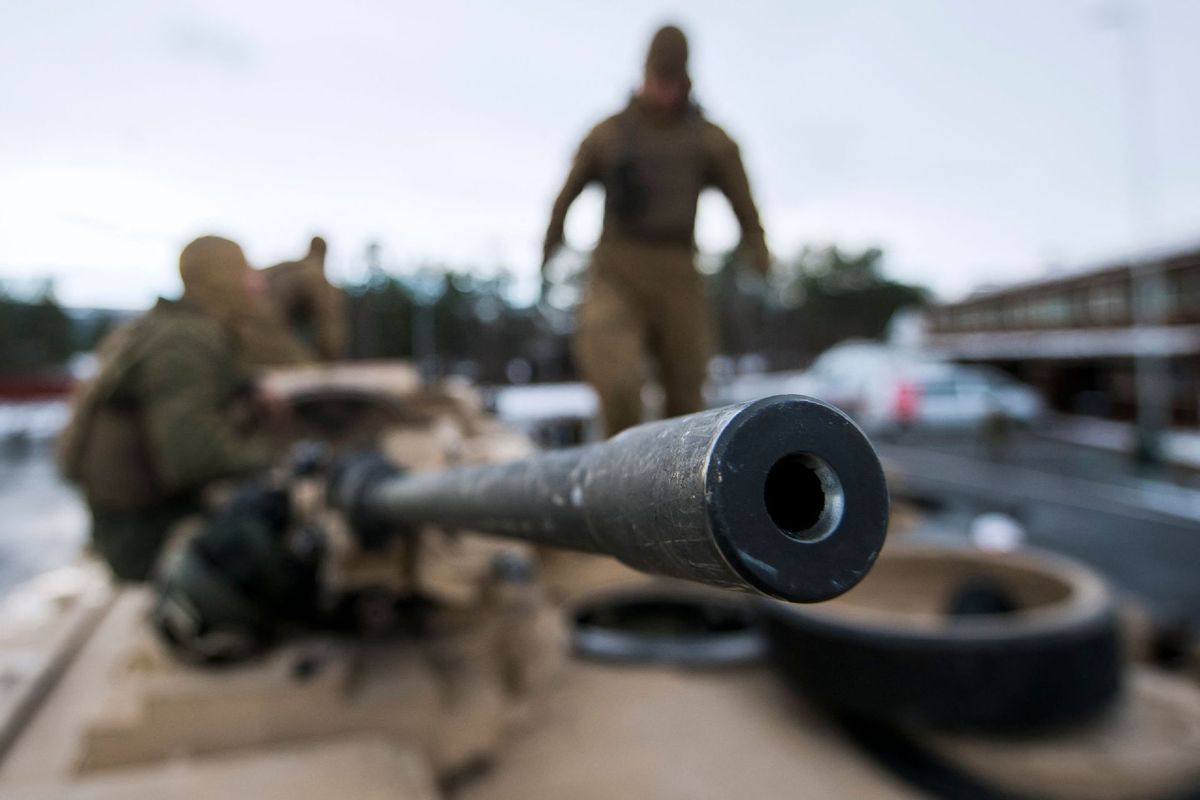
Russia on Thursday called the US decision to send to Ukraine armor-piercing shells containing depleted uranium for US-made Abrams tanks "a criminal act".
"This is not just an escalatory step, but it is a reflection of Washington's outrageous disregard for the environmental consequences of using this kind of ammunition in a combat zone. This is, in fact, a criminal act, I cannot give any other assessment," Russian Deputy Foreign Minister Sergei Ryabkov said, according to state news agency Tass.
After the Pentagon announced Wednesday that for the first time the US will send the armor-piercing ammunition containing depleted uranium, the Russian embassy in Washington denounced the decision as "an indicator of inhumanity".
"The US is deliberately transferring weapons with indiscriminate effects," the embassy said. "It is fully aware of the consequences: explosions of such munitions result in the formation of a moving radioactive cloud. Small particles of uranium settle in the respiratory tract, lungs, esophagus, accumulate in kidneys and liver, cause cancer and lead to the inhibition of the whole organism's functions."
US officials say the munitions are common and don't present a radioactive threat. The use of depleted uranium shells isn't banned under international law. But their use has been fiercely debated, with opponents such as the International Coalition to Ban Uranium Weapons saying there are dangerous health risks from ingesting or inhaling depleted uranium dust, including cancers and birth defects.
The United Nations Environment Program said in a report last year that the metal's chemical toxicity presents the greatest potential danger, and "it can cause skin irritation, kidney failure and increase the risks of cancer".
US National Security Council spokesman John Kirby said Wednesday that the ammunition isn't radioactive and "not anywhere close to going into" the sphere of nuclear weaponry.
"This is a commonplace type of munition that is used particularly for its armor-piercing capabilities," he said
The Pentagon announcement said that an unspecified number of depleted-uranium tank rounds are part of a new military aid package for Ukraine worth up to $175 million. It is part of more than $1 billion in civilian and defense support that US Secretary of State Antony Blinken announced in the Ukrainian capital, Kyiv, on Wednesday.
The 120 mm rounds will be used to arm the 31 M1A1 Abrams tanks that the US plans to deliver to Ukraine this fall. The armor-piercing rounds were developed by the US during the Cold War to destroy Soviet tanks, including the T-72 tanks that Ukraine now faces in its counteroffensive.
Russia also reacted angrily when the UK announced in March it was sending depleted uranium shells to Ukraine for its Challenger 2 tanks.
When Russian President Vladimir Putin described the weapons as having a "nuclear component", the UK Ministry of Defense said it had used depleted uranium in its armor-piercing shells for decades and accused Moscow of deliberately spreading misinformation.
The move to send the depleted-uranium weapons comes following the White House's decision to send Ukraine cluster munitions, which are banned by more than 100 countries because of their devastating effects, sometimes years later, on children and other civilians who mistakenly disturb and detonate unexploded rounds.
The New York Times reported Thursday that three American officials, who were not named, said that the Biden administration is planning to send more cluster munitions and soon because they were key to helping Ukrainian troops gain momentum.
In March, the Pentagon said it wouldn't be sending any depleted uranium munitions to Ukraine. But last week Reuters reported that the US had decided to send the munitions. A Department of Defense
official told the Politico website that the US decided to send the weapons because they were thought to be the best way of arming Abrams tanks in Ukraine.
The reversal comes after months of debate over the armor-piercing rounds at the White House, where some officials expressed concern that sending the rounds might open Washington to criticism that it was providing a weapon that may carry health and environmental risks, The Wall Street Journal reported in January.
US officials cite studies by the International Atomic Energy Agency (IAEA), the United Nations' nuclear watchdog, showing "the existence of depleted uranium residues dispersed in the environment does not pose a radiological hazard to the population of the affected regions".
WASHINGTON -- The United States will begin training Ukrainian pilots on F-16 fighter jets in September at US Air Force bases in two southern states, the Department of Defense announced Thursday.
The training, which will include "several pilots and dozens of maintainers," will start in September with English-language classes to be offered at Lackland Air Force Base in Texas, Pentagon Press Secretary Pat Ryder told a press briefing.
After the trainees grasp the necessary language skills, they will then be trained on how to actually fly the F-16, and this process will begin in October at Morris Air National Guard Base in Arizona, Ryder said.
The training in the United States "will be the fundamental fighter pilot training," he said, adding that the exact curriculum for the Ukrainian pilots will depend on their levels of experience, of which an assessment is also part of the training program.
On the duration of the training, Ryder said it typically takes eight months for a new F-16 pilot with not a lot of training on the US side to complete the process, and "within the five-month range" for an experienced pilot receiving "upgrade training."
Currently, European countries are leading the effort to train Ukrainian pilots on F-16s and other advanced fighters made by Western countries, with Demark and the Netherlands now prepared to undertake the task. The US government previously said it would do its part to provide training on US soil if and when Europe reached the full capacity.
Without giving a specific timeline of F-16 deliveries, Ryder said it could be months ahead, adding that European countries are looking to provide the aircraft "and the United States will support that effort through the third-party transfer process."
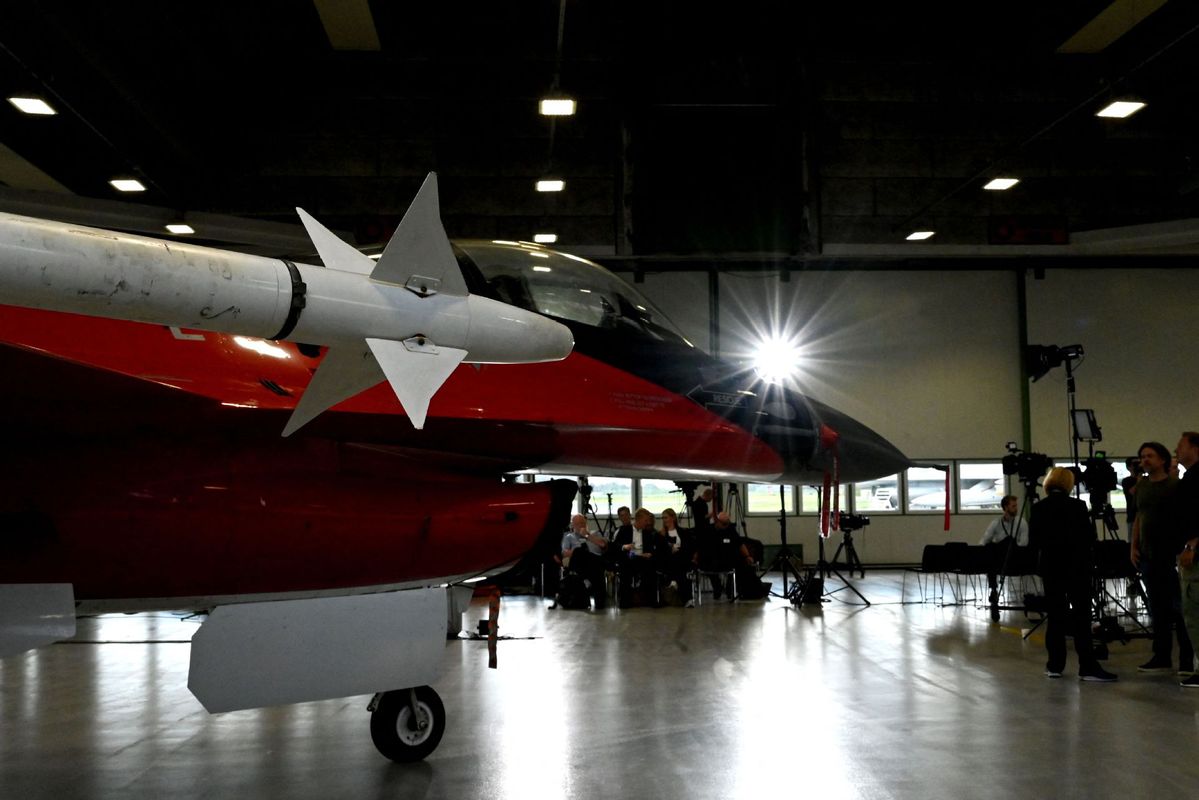
The Netherlands and Denmark welcomed the US approval for them to deliver F-16 fighter jets to Ukraine but the training of pilots and delivery of the planes are unlikely to be completed until next year.
The two European countries, both members of NATO, confirmed on Friday that they received the US green light after US Secretary of State Antony Blinken sent letters to his counterparts in the two capitals assuring them of the approval.
Blinken expressed that the approval would allow Ukraine to take "full advantage of its new capabilities as soon as the first set of pilots completes their training".
Dutch Defense Minister Kajsa Ollongren welcomed the US decision "to clear the way for delivery of F-16 jets to Ukraine", which she said would allow the international coalition "to follow through on the training of Ukrainian pilots".
A coalition of 11 countries agreed at the NATO summit in July to train Ukrainians to fly F-16 jets, which will start this month in Denmark and then in Romania after a training center is built. But the Netherlands Times reported on Friday that the first Ukrainian pilots will probably complete their training in the summer of next year and Ukraine is unlikely to receive any F-16s until next year.
"We welcome Washington's decision to pave the way for sending#F16 Fighter Jets to Ukraine ….Now we will further discuss the subject with our European partners," Dutch Foreign Minister Wopke Hoekstra said in a post on X, formerly Twitter, on Friday.
"The government has said several times that a donation is a natural next step after training. We are discussing it with close allies, and I expect we will soon be able to be more concrete about that," Danish Defense Minister Jakob Ellemann-Jensen told Ritzau news agency on Friday.
Ukraine has been seeking F-16 jets for months to help it counter Russian air superiority in the conflict that began in February last year.
US President Joe Biden, worried about a major escalation with Russia, had ruled out sending F-16 jets to Ukraine in late January. However, he changed his stance in May, agreeing to train Ukrainian pilots to fly F-16 planes.
Russian Deputy Foreign Minister Alexander Grushko earlier warned Western nations of "enormous risks "if Ukraine is provided with F-16 jets.
"It involves enormous risks for themselves. In any case, this will be taken into account in all our plans, and we have all the necessary means to achieve the set goals," TASS news agency quoted him as saying.
Agencies contributed to this story.
chenweihua@chinadaily.com.cn
KYIV -- At least seven people were killed and 90 others injured Saturday when a missile fired by Russia hit the city of Chernihiv in northern Ukraine, the country's Ministry of Internal Affairs said.
Ten police officers and 12 children were among those injured in the attack, the ministry said in a Telegram post.
According to a statement on the ministry's website, the missile hit a theater in the central square of the city.
Ukraine's UNIAN news agency reported that the theater had hosted a drone exhibition at the time of the attack.
